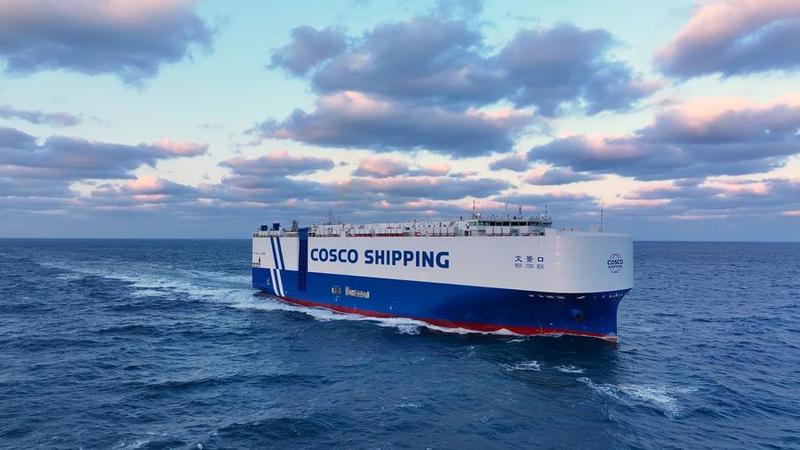US steaming full speed ahead into difficulties


The Office of the United States Trade Representative announced last week that it will impose high "port fees" on ships built and operated by China, and the relevant measures will take effect from mid-October this year. As the fleets of major global shipping companies generally use ships built in China, this move has caused concern in many industries in the United States.
That's why the US administration's plan has been widely questioned by US industry insiders.
According to the Financial Times, the US liquefied natural gas industry recently warned the Donald Trump administration that the US currently has no ability to build liquefied natural gas ships, and the imposition of "port fees" on Chinese ships cannot promote domestic shipbuilding in the US.
In a lobbying letter to the US government this week, the American Petroleum Institute stated that US liquefied natural gas producers cannot comply with the new regulations of the Office of the US Trade Representative. There are no liquefied natural gas ships built in the US, and US shipyards have no ability to build new liquefied natural gas ships before 2029. Therefore, the "port fee" regulations will significantly increase the cost of ships.
The API's worries are justified as the US government may take further measures in the future to use similar trade means to suspend export licenses. The group warned in the letter that the rules would only undermine the dominance of US producers in the LNG industry and undermine the US strategy to "consolidate its position as a global energy superpower".
The US LNG industry also asked the US administration to exempt crude oil and refined oil products such as gasoline and liquefied petroleum gas from shipping tariffs, arguing that such fees would disrupt supply chains and hit industry competitiveness.
The US surpassed Australia in 2023 to become the world's largest LNG exporter, exporting about 337 million cubic meters of LNG per day last year. The industry generates $34 billion in exports for the US each year and has become the centerpiece of the Trump administration's "energy dominance" agenda.
The Office of the USTR issued a notice on April 17 announcing that it would charge Chinese shipowners and operators a "port fee" of $50 per net ton per voyage from mid-October, and increase the fee by $30 per net ton each year over the next three years. For Chinese-built ships used by operators from other countries, the fee will be $18 per net ton or $120 per container, and gradually increase over three years. It also announced that the US government will launch a second phase of measures in three years to restrict the use of foreign ships to transport liquefied natural gas to boost the US shipbuilding industry.
But the port fee policy and the plan to restrict US companies using foreign LNG tankers are both divorced from reality, as the US now lacks the ability to build LNG ships, which cannot be built in a short time.
Currently, Chinese-made ships account for about 7 percent of the world's active LNG fleet, but Chinese shipyards have been expanding their market share, accounting for about 28 percent of LNG ship orders.
As some US observers said, the US cannot build new LNG ships before 2029, as shipyards now have neither the experience nor the technology to do this. US LNG industry insiders also pointed out that the US administration's requirement to "use US-built, US-flagged ships to transport US liquefied natural gas" is simply not feasible, as the US companies do not have such ships and it takes decades to build them, which makes it impossible for the US LNG and transportation industries to comply with such regulations.
As Chinese Foreign Ministry spokesperson Lin Jian said, the US measures such as levying port fees and imposing tariffs on cargo loading and unloading equipment are harmful to both sides, pushing up global shipping costs and disrupting the stability of the global production and supply chains. The policy will also increase inflationary pressure in the US, harm the interests of US consumers and companies, and ultimately fail to revitalize the US shipbuilding industry. The US should immediately stop its wrong practices. If it presses ahead with its "port fee" policy, China will have no choice but to take necessary measures to defend its legitimate rights and interests.


































